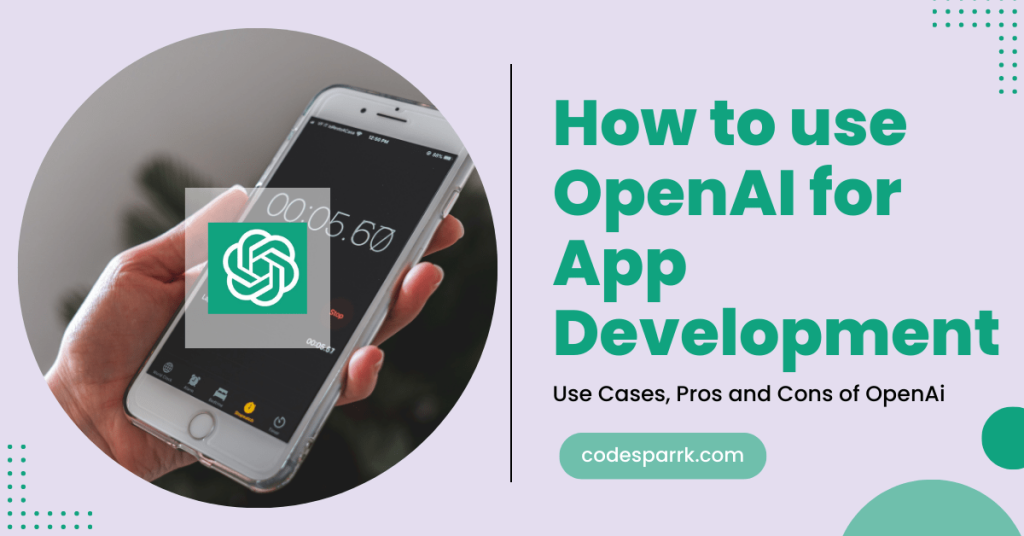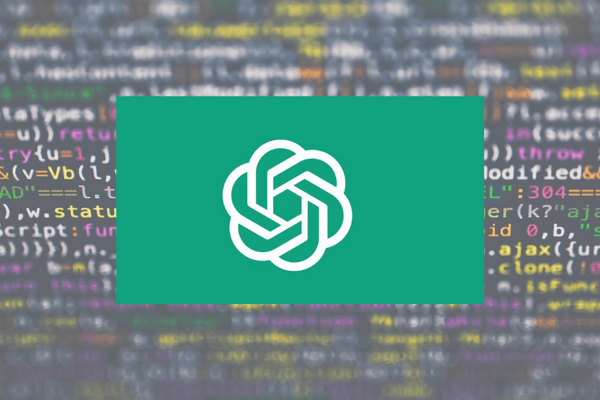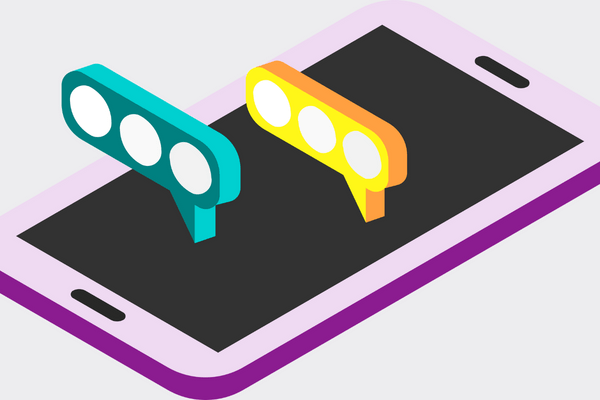Have a Requirement?
We build your dream project from conception to completion!
Leave Your Details and We’ll Get Back to You!

As an AI language model, I’m thrilled to talk about OpenAI’s revolutionary impact on app development. In today’s digital era, apps are ubiquitous, and with every passing day, app development is becoming more critical for businesses worldwide. OpenAI has played a significant role in changing the landscape of app development, offering new solutions that streamline and simplify the process. In this article, we’ll explore how we could use OpenAI for app development to build variety of applications.

Let’s begin by discussing what OpenAI is and what it does. OpenAI is an artificial intelligence research laboratory consisting of some of the brightest minds in AI research, including co-founder Elon Musk. The company was founded in 2015 with the goal of advancing AI for the betterment of society.
OpenAI is now a leading force in the AI industry, with a focus on creating advanced AI models that can perform complex tasks. Check out some major uses of OpenAi for app development
One of the most significant contributions of OpenAI to app development is Natural Language Processing (NLP). NLP is the ability of computers to interpret human language, including spoken and written communication. OpenAI’s GPT-3 (Generative Pre-trained Transformer 3) language model is a game-changer in the field of NLP. GPT-3 can understand the nuances of human language and generate natural-sounding responses.
GPT-3’s capabilities have paved the way for the development of advanced chatbots. Chatbots are automated programs that can communicate with humans and perform tasks, such as customer support, sales, and even therapy. OpenAI’s chatbot, GPT-3-powered AI language model, has proven to be highly effective in creating chatbots that can mimic human-like conversations.

OpenAI has also made significant strides in automating app development. App development can be a time-consuming and costly process, but OpenAI’s models can automate many of the processes involved, such as coding, testing, and debugging. With OpenAI’s automation tools, developers can save time, reduce costs, and focus on more significant aspects of the development process.

Data analysis is another area where OpenAI is making a significant impact. Data analysis involves collecting, processing, and interpreting data to make informed decisions. OpenAI’s models can analyze vast amounts of data, identify patterns, and provide insights that can help developers improve their apps.

Personalization is essential for creating successful apps. OpenAI’s models can analyze user data and provide personalized recommendations, such as products, services, or content. This can lead to increased user engagement and satisfaction, as well as increased revenue for businesses.
OpenAI is also making app development more accessible to people with disabilities. OpenAI’s models can interpret sign language and other forms of non-verbal communication, making it possible to create apps that are more inclusive and accessible to everyone.
What is the one marketing strategy that can boost customer engagement exponentially? Collaborations with the right brands. Reach poOpenAI’s models are also making a significant impact on the gaming industry. OpenAI’s gaming AI can learn from human players and develop strategies that can beat even the best human players. This has led to the development of advanced AI-powered gaming systems that can provide challenging and engaging gameplay experiences.
tential collaborators or invite them to build brand awareness. Influencer marketing is one of the top features that you get from social media. All of this can potentially lead to your mobile app. Social media platforms including Fcabeook, Intsagram, LinkedIn, give you a specific window for ads and collaboration. Collab with potentially rich companies and boost your value exponentially.
Testing and debugging are essential aspects of app development. OpenAI’s models can automate the testing and debugging process, reducing the time and effort required to find and fix bugs. This can lead to faster app development and increased productivity.
Augmented reality (AR) is becoming increasingly popular, with apps like Pokemon Go and Snapchat using AR technology to create engaging and interactive experiences. OpenAI’s models can analyze data from AR sensors and provide real-time feedback, making it possible to create more advanced and immersive AR experiences.
OpenAI has revolutionized the way we approach mobile app development, providing advanced AI models that streamline and simplify the development process. However, there are both pros and cons to using OpenAI in mobile app development, which we will discuss below.
Increased Efficiency:
OpenAI’s models can automate many of the processes involved in mobile app development, such as coding, testing, and debugging. This can save developers time and increase their productivity.
Improved User Experience:
OpenAI’s models can provide personalized recommendations and improve app accessibility, leading to a more engaging and inclusive user experience.
Enhanced Data Analysis:
OpenAI’s models can analyze vast amounts of data and identify patterns, providing insights that can help developers improve their apps.
Cost Savings:
By automating many of the processes involved in mobile app development, OpenAI can help reduce development costs.
Improved Gaming:
OpenAI’s gaming AI can learn from human players and develop strategies that can beat even the best human players, providing a more challenging and engaging gameplay experience.
Security Risks:
As with any technology, there is a risk of security breaches when using OpenAI. Developers need to ensure that their apps are secure and that user data is protected.
Dependence on AI Models:
Developers may become too reliant on OpenAI’s models, leading to a lack of creativity and innovation in mobile app development.
Complexity:
OpenAI’s models can be complex and difficult to understand, requiring significant training and expertise to use effectively.
Bias:
OpenAI’s models may exhibit bias, reflecting the biases of their creators or the data used to train them. Developers need to be aware of these biases and take steps to mitigate their impact.
Lack of Control:
When using OpenAI, developers may have limited control over the decision-making process, which could result in unintended consequences or errors.
Relates article
The Future of AI for App Development
In conclusion, while there are both pros and cons to using OpenAI in mobile app development, the benefits outweigh the risks. With proper implementation and management, OpenAI can help developers create better apps that offer an engaging and personalized user experience while reducing costs and increasing efficiency.Hence using openai for app development plays significant role in upcoming years.
OpenAI is an artificial intelligence research laboratory consisting of the world’s leading AI researchers and engineers. OpenAI’s technology can be used to develop intelligent applications that are capable of performing tasks such as natural language processing, computer vision, and machine learning. Developers can use OpenAI’s APIs to integrate AI capabilities into their applications, enhancing their functionality and improving user experience.
Using OpenAI in app development provides developers with access to cutting-edge AI technology that can help to automate tasks, improve user experience, and increase overall efficiency. OpenAI’s technology can also help developers to create more personalized and relevant content for users, leading to greater engagement and higher user satisfaction.
One potential drawback of using OpenAI in app development is that it can be difficult and time-consuming to integrate AI technology into an application. Additionally, there may be concerns around data privacy and security, as AI-powered applications often rely on large amounts of user data to function effectively. Finally, there may be ethical considerations around the use of AI in certain applications, such as those that involve facial recognition or other sensitive data.
We build your dream project from conception to completion!
Leave Your Details and We’ll Get Back to You!
